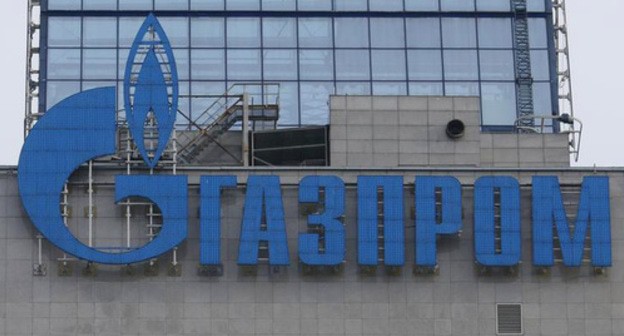
Gazprom Wants to Abandon Money-Losing Gas Distribution Obligations in Dagestan
Publication: Eurasia Daily Monitor Volume: 18 Issue: 25
By:

Russian energy giant Gazprom wants to completely abandon its natural gas retail sales and distribution business in Dagestan because those operations bring the state-owned firm only losses. The company has asked the Russian government to relieve it of its distributor obligations, and it is prepared to hand over, for free, all of its assets in the region to the government or to some other specially designated state-controlled company. Gazprom only wishes to retain wholesale natural gas supplies to Dagestan. According to a letter from the company’s CEO, Aleksei Miller, to Russian Prime Minister Mikhail Mishustin, Gazprom was unable to raise customer payment rates or shut down illegal gas consumption, and the firm is mired in court battles over payments for using local gas distribution networks. Gazprom owns about 18 percent of the almost 14,000 kilometers of Dagestan’s gas distribution network; ownership of the rest is a complicated and unresolved issue (Kommersant, February 3).
Gazprom’s stunning decision to pull out from Dagestan in some ways echoes Russia’s broader gradual retreat from the North Caucasus (see EDM, November 30, 2012, April 20, 2015, April 2, 2020). Although the company’s exasperation and its decision to leave the region’s easternmost republic certainly falls short of a full withdrawal, it is likely to contribute to emergent thinking in the Kremlin of Dagestan and the wider North Caucasus as an economic drag on Russia that is best abandoned. The idea is not new: in 2011, for example, the public campaign “Stop Feeding the Caucasus!” gained momentum in Moscow and several other big Russian cities (Ekho Moskvy, October 22, 2011). The loosely but vigorously articulated proposition then was that the Russian government stop subsidizing North Caucasus republics. The slogan became so popular among many Russians that the country’s leadership was forced to respond to the criticism. When Russia forcibly annexed Crimea and launched the “hybrid” war in eastern Ukraine in 2014, internal societal fissures were subsumed for a time by the associated “patriotic” fervor. Nevertheless, it appears that the issues pertaining to wealth and resource redistribution among Russian regions have lingered just below the surface—especially concerning the North Caucasus. Isolationist tendencies among ethnic Russians remain very much alive (for example, the ongoing public campaign “Buy from Russians/Buy from your own”) and have grown into grassroot initiatives that might one day influence high-level political decisions (Tsargrad.tv, January 17, 2021; YouTube, accessed February 15).
In his aforementioned letter to the government, Gazprom’s CEO complains not only about ordinary Dagestani customers who allegedly deprive the company of its due profits but also about high levels of corruption in the republic. According to Miller, Gazprom’s efforts to verify the subscriber base, eliminate illegal tapping into local gas distribution networks, and to improve customer payment discipline, “do not find adequate support from Dagestani authorities.” Presumably, then, the appointments of Moscow viceroy Vladimir Vasiliev as the governor of the republic in 2017 and of his successor, another man with a military background, Sergei Melikov, in 2020 did not ameliorate Gazprom’s issues in this territory.
The overall backlog of payments to Gazprom in Dagestan was estimated at about 24.3 billion rubles (around $330 million) on October 1, 2020. Across the North Caucasus, the backlog of payments for energy sources is many times larger—by 2020, due payments for consumed natural gas and electricity were estimated at 115 billion rubles (about $1.56 billion) and continued to grow (Finanz.ru, February 20, 2020). In 2019, some officials estimated the due payments at over 200 billion rubles ($2.7 billion) (TASS, March 13, 2019).
The Russian government has tried to resolve the problem by handing gas and electricity distribution networks in the North Caucasian republics to the respective Russian monopolies. However, experts have pointed out that this move is unlikely to remedy the critical situation. For one thing, the large and growing backlog of payments is partially attributed to the general poverty of the population of the North Caucasus, bad management and theft. On top of the payment crisis, the local infrastructure is generally dilapidated. In 2018, Gazprom estimated it would have to invest an equivalent of nearly $1 billion to modernize gas distribution networks in Chechnya alone, where the company also claimed to be hemorrhaging money (Kommersant, July 24, 2018).
Yet business considerations aside, there is certainly the political issue of supplying gas and electricity to a potentially secessionist region. Just as Gazprom’s distribution networks outside Russia are not only about the economy, in the same way, the company’s policies in the North Caucasus go beyond strictly economic considerations. The memory of Chechnya’s failed attempts to secede from Russia in the 1990s and 2000s remains fresh for many Russians as well as the country’s leadership. The authorities may consciously want to retain the ability to remind the North Caucasians of their dependence on Moscow’s goodwill and energy supplies as a means to suppress pro-independence voices.
Still, Gazprom’s exasperated withdrawal from Dagestan indicates that economic interests could, at some point, eclipse Moscow’s political sensitivities toward the region. Signs of support for Russia’s withdrawal from the North Caucasus can already be observed both among some Russian elites and the wider Russian public. Yet a breaking point in Moscow’s regional policy will require not only a sharp downturn in the economic fortunes of Russian energy companies but also a fundamental change in Moscow’s political regime.



